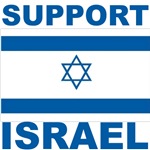A view of 'the Middle Kingdom'.
Things were so much more straight forward during the Cold War. It was pretty obvious to us who the 'other side' were, and they were there, and we were here, and there was very little interaction, and virtually no reliance of one bloc one to the other for trade or commerce.
These days, things are different. The 'other side' is really other sides, and interaction, trade and commerce is intimately intertwined. We need oil from the middle east, yet that is where many of those who view the west as enemies come from. We import cheap goods from China, export our resources, yet China is an up-and-coming economic and military power.
So when I see thought provoking articles like this one (found via Samizdata), I try to visualise where it's all heading.
Gary Rosen from 'Commentary' magazine (must remember that one - looks like good journalism) visited China and got quite an education. Not just on what China has achieved in less than 20 years of embracing a market economy, but in how things are done there;
What of China's neighbours? Taiwan has the Sword of Damocles hanging over it. I suspect China has some scores to settle with Japan. And if it wants 'liebenstraum' and resources - what then?
And that is only part of the modern equation. Add in the Islamic world, India, Russia, the 'United States of Europe' (the EU) and the world is most certainly a very differt place than it was pre-1989!
These days, things are different. The 'other side' is really other sides, and interaction, trade and commerce is intimately intertwined. We need oil from the middle east, yet that is where many of those who view the west as enemies come from. We import cheap goods from China, export our resources, yet China is an up-and-coming economic and military power.
So when I see thought provoking articles like this one (found via Samizdata), I try to visualise where it's all heading.
Gary Rosen from 'Commentary' magazine (must remember that one - looks like good journalism) visited China and got quite an education. Not just on what China has achieved in less than 20 years of embracing a market economy, but in how things are done there;
"...One might have an abstract sense of the scale and density of China’s hyper-development, but seeing it on foot or from the window of a minibus is another thing altogether. The massive, anonymous glass-and-steel office towers and concrete apartment blocs simply go on forever, and the traffic is a heart-stopping game of chicken, with bicycles, “trishaws,” and motorized carts flowing heedlessly into lanes of overloaded trucks and speeding Buicks and BMW’s. This is the ground-level view of a decade-and-a-half of roughly 10-percent annual growth in GDP, a period during which hundreds of millions of Chinese have been lifted from poverty...".When reading, not just that, but many things on China, I am left with the feeling China has made some issues for itself to deal with. How, for example can you educate and open up a society without that society observing and questioning? And if the answer to that question is not what the rulers are prepared to accommodate?
"...As he spoke to us in a glass-walled conference room, the smog outside was so thick that nearby buildings were visible only in outline. “Is this a ‘good’ air day?,” I asked, pointing toward the street. Without missing a beat, he replied, “it takes an expert to determine that.”...".
"...When I asked him what would happen if protesters wished to speak out about Taiwan or the human-rights situation in China, he said that “the public-security apparatus would decide what is appropriate,” noting (without apparent irony) that “this is how it is done in every country...".
"...“China has a population of 1.3 billion people, including the 23 million people of Taiwan. It is not for them to decide their own status.”...".
"...Thinking about Yuan and her friends—cosmopolitan, English-speaking students at China’s most elite university—I find it difficult to imagine that the People’s Republic will easily contain them. Some will undoubtedly be co-opted by economic opportunities, like much of China’s middle class; others will end up serving the Chinese state, perhaps in a role like that of Mr. Huang, practicing the “techniques of hospitality” on foreign visitors. But it seems just as likely that, following the lead of the previous generation, they will begin to ask why China, alone among the world’s great nations, cannot enjoy the full range of modern freedoms. Their protestations aside, they may yet have their own Tiananmen. If it comes to that, one can only pray that this time it turns out very differently....".
What of China's neighbours? Taiwan has the Sword of Damocles hanging over it. I suspect China has some scores to settle with Japan. And if it wants 'liebenstraum' and resources - what then?
And that is only part of the modern equation. Add in the Islamic world, India, Russia, the 'United States of Europe' (the EU) and the world is most certainly a very differt place than it was pre-1989!
Labels: China, globalisation, politics








0 Comments:
Post a Comment
<< Home